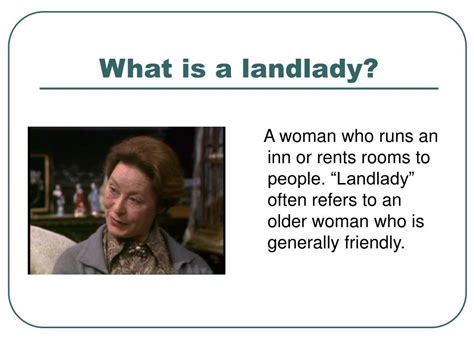Roald Dahl’s chilling short story “The Landlady” explores the dangers of loneliness, the facade of hospitality, and the sinister consequences of seeking companionship in the wrong places. Through its unsettling atmosphere and surprising twist ending, the story serves as a cautionary tale about trusting strangers and the importance of seeking genuine connections.

Loneliness and the Desire for Companionship
The protagonist, Billy Weaver, is a young man who has just arrived in Bath and is desperately seeking a place to stay. He is immediately drawn to the quaint and inviting facade of the Bed and Breakfast run by the seemingly kind and hospitable landlady. However, Billy’s initial feelings of comfort and safety gradually give way to a growing sense of unease as he realizes the true nature of his surroundings.
Dahl masterfully portrays the allure of companionship for those who are lonely and vulnerable. Billy’s longing for human connection makes him overlook the subtle red flags that point to the landlady’s sinister intentions. This highlights the fact that loneliness can cloud our judgment and lead us to make poor choices.
The Facade of Hospitality
The landlady’s deceptively warm and welcoming demeanor creates a false sense of security. She appears to be the perfect hostess, offering Billy tea and biscuits and expressing concern for his well-being. However, her polite facade masks a sinister and manipulative nature.
Dahl’s use of foreshadowing and subtle clues hints at the landlady’s true intentions. The absence of other guests at the Bed and Breakfast, the peculiar behavior of the taxidermied pets, and the landlady’s odd questions about Billy’s past all contribute to the growing sense of unease and suspicion.
The Sinister Consequences
As Billy’s suspicions grow, he comes to realize that the landlady is not what she seems. Her desire for companionship has turned into a twisted obsession, and she is determined to keep Billy as her permanent guest. The story culminates in a shocking twist ending that reveals the landlady’s true nature and the horrific fate that awaits those who fall prey to her deceptive charms.
Dahl’s exploration of the sinister consequences of misplaced trust serves as a warning about the dangers of seeking companionship from unreliable sources. It also highlights the importance of listening to our instincts and not ignoring the subtle red flags that may indicate a dangerous situation.
Additional Themes:
-
Isolation and alienation: Billy’s loneliness and isolation make him vulnerable to the landlady’s manipulative tactics.
-
The dangers of superficiality: Billy is initially drawn to the landlady’s inviting facade and fails to recognize the sinister undertones that hint at her true nature.
-
The power of appearances: The landlady’s seemingly kind and harmless demeanor disguises her sinister intentions.
-
The importance of trust: Billy’s misplaced trust in the landlady ultimately leads to his downfall.
Conclusion
Roald Dahl’s “The Landlady” is a masterfully crafted short story that explores the complex themes of loneliness, the facade of hospitality, and the sinister consequences of seeking companionship in the wrong places. Through its unsettling atmosphere and surprising twist ending, the story serves as a cautionary tale about trusting strangers and the importance of seeking genuine connections.
